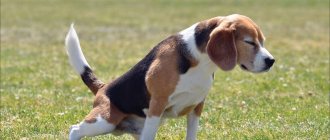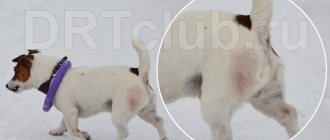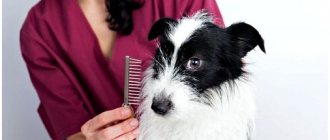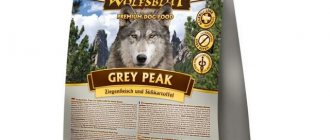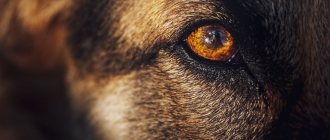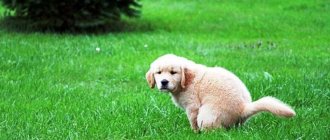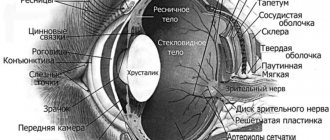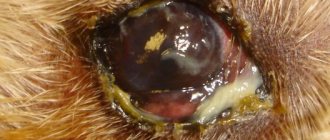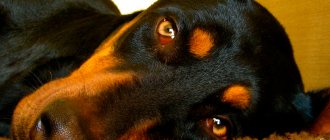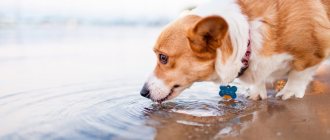During the colder months of winter, there's nothing better than cuddling up in a warm blanket with a cup of tea. Apart from the many benefits of herbal tea, it also helps us get through the flu season.
When my dog got sick, I thought of all the possible ways to help her. Perhaps a cup of herbal tea will strengthen your immune system and help fight inflammation. But is it possible to give dogs tea?
Dogs can drink tea, and certain types, such as green tea and chamomile tea, can help with your dog's upset stomach.
However, dog milk tea may not be the best addition to your dog's diet as it contains a lot of fat and sugar and can cause allergic reactions. Dogs should never drink caffeinated tea.
What drink other than water is good for your dog?
It is unlikely that you will argue that drinking is vital for any animal, including a dog. You probably have cups filled with fresh water for your pet in your home. But cases and circumstances in life are different, is it possible to replace water with something? It is no secret that some kind and “compassionate” owners generously share milk, soda, tea, coffee and even beer with their four-legged friends. How harmful is all this for the pet? Details are in the article.
Dogs learn about the world through their mouth and tongue. We also forgot to add “through the nose.” Dogs are generally very inquisitive; they would willingly taste all the drinks that a caring owner would put in front of them! The question is different: how will these drinks affect the dog’s health, and would their consumption turn into a big disaster?
Dogs and milk. Of course, little puppies drink their mother's milk, which contains all the minerals, elements and antibodies necessary to maintain their health. But, as soon as grown-up puppies are taken away from their mother and accustomed to “adult” food, they no longer return to milk. Moreover, most dogs are lactose intolerant. All the protein and calcium necessary for the health of adult dogs is contained in high-quality dog food.
You need to figure it out: is your pet lactose intolerant at all, or does it all depend on the volume of drinks? In any case, if you continue to feed your dog milk, serious stomach upset may occur. In a word, you can give milk, but this should be done sporadically and in very small quantities.
What about tea and coffee? Yes, this also happens - some owners treat their pets to tea and coffee. And they do it in vain - the drinks contain quite a lot of caffeine. Long-term consumption of tea and coffee can lead to caffeine poisoning. Our four-legged friends weigh much less than us, so they require much less caffeine to seriously harm their health.
Is fruit juice ok? The catch here is that you won’t find real fruit juices in our stores. All of them are prepared on the basis of concentrates and contain a decent amount of various additives of varying degrees of harmfulness. Dogs do not need these additives – flavorings and preservatives – at all. In addition, fruit juice will put additional stress on your pet's digestive system. So giving your dog store-bought juices is not a good idea.
How about something stronger? Drinks containing alcohol in any, even minute quantities, pose a mortal danger to your pet. Drinking alcohol will affect the performance of all vital organs of your dog, and, first of all, the heart and lungs. No matter what kind of drink we are talking about - beer, wine or something worse - forever give up the desire to give your four-legged friend a drink.
Your pet should always have a supply of fresh and clean water. Water is the perfect drink for your pet! Plain water will help maintain the necessary balance of fluid in the body, in addition, it will pleasantly cool and bring freshness on a hot summer day. Dogs prefer cooler water; this is why they prefer to drink from the toilet rather than from their own cup. However, dogs need fresh water in any form and at any temperature. Dogs sweat and lose moisture through their paws. When an animal breathes heavily, it uses moisture from its “internal” reserves. Access to water means that the animal has the ability to independently and very effectively regulate its body temperature, even if it is cool outside.
You probably want to ask, what should you do as a last resort? When there is no water nearby and nowhere to get it? Let us answer this question simply and unequivocally: nothing can replace water; if there is no water, then it is better not to give the animal any drinks at all. Everything else can only harm him.
Source
General principles of healthy eating
The amount of food a pet can eat at one time depends on the size of the animal, its health, climate and weather, and many other factors. You need to feed your pet at the same time. If there are not enough vitamins in the diet, you need to buy special vitamins for dogs.
Dogs can be fed either natural food or commercial food. In any case, only a veterinarian should draw up a diet and prescribe a diet. It is necessary to choose premium and super-premium dog food. This is the highest quality food. The best choice would be holistic food - food that is identical in composition to human food. In pet stores you can find any compositions for large, medium and small breeds.
A responsible owner will give your pet healthy food
You can give your pet dry and wet food. It is necessary to strictly observe the feeding regime: puppies should eat often, but adults need two meals a day. It is advisable to pour a handful of dry food into a bowl, then the pet will be able to eat during the day if it wants.
Note! You cannot feed your dog cat food because it has a different composition. There will be no benefit from such a diet.
If your dog has problems with nutrition, the veterinarian may prescribe special medications for both digestion (pancreatin, some enzymes) and mood (sedative tablets, valerian). Anthelmintics (anthelmintic drugs), for example, decaris or prazitel, etc., may be needed.
Food in a bowl should be tasty and of high quality
There are foods that harm representatives of any breed; huskies, spitz dogs, chihuahuas, yorkies, shepherd dogs, and mongrels suffer equally from them. By remembering what dogs should not eat, the owner will protect his pet from many diseases and give him a long and healthy life.
Can dogs drink tea?
During the colder months of winter, there's nothing better than cuddling up in a warm blanket with a cup of tea. Apart from the many benefits of herbal tea, it also helps us get through the flu season.
When my dog got sick, I thought of all the possible ways to help her. Perhaps a cup of herbal tea will strengthen your immune system and help fight inflammation. But is it possible to give dogs tea?
Dogs can drink tea, and certain types, such as green tea and chamomile tea, can help with your dog's upset stomach.
However, dog milk tea may not be the best addition to your dog's diet as it contains a lot of fat and sugar and can cause allergic reactions. Dogs should never drink caffeinated tea.
What not to feed your pet
Poor nutrition is fraught not only with obesity, but also with the formation of plaque on the teeth, which is accompanied by bad breath. Many products cause systemic diseases and acute poisoning. Compose a diet only from what the dog’s body is able to digest with benefit. If your pet steals something from the table, you should definitely consult a veterinarian.
There are some foods that are not suitable for dogs. Even if a pet asks for food, there is no need to “pity” it, remembering that it can cause harm. If you neglect this rule, you may encounter problems with your pet’s health. When creating a menu, carefully study the prohibited products and do not neglect the recommendations. It is better to prevent the development of diseases of the digestive system than to solve the problem later, wasting money and time.
Chocolate, candies, baked goods and muffins
Chocolate contains methylxanthines, which are nervous system stimulants. The digestive system of animals is not able to process theobromine and caffeine, which is part of candies and chocolate.
If you include chocolate in your diet, you may experience vomiting, diarrhea, rapid heartbeat, low blood pressure, seizures, or paralysis. The darker the chocolate, the more methylxanthines, it is more toxic.
Smoked, canned, spicy and salty foods
These foods contain a lot of fat and salt. Their use is dangerous for the development of joint diseases, impaired kidney function and gastrointestinal tract function. The feeling of thirst that arises after eating spicy and salty foods can lead to dilation of the stomach and volvulus.
Milk and dairy products
Milk and dairy products are not recommended due to their high fat content. They also lead to indigestion, which can lead to dehydration and death.
Alcohol
Alcohol is very dangerous for four-legged pets because it contains ethanol, which causes severe intoxication in them. There is a high risk of developing heart failure or paralysis.
Raw meat and fish
Raw or poorly processed meat or fish can be dangerous for infestation with worms. These foods may contain E. coli, salmonella, and other pathogens that can cause dangerous problems. You should not give your dog raw food.
Bones
Sharp pieces of meat bones can cause painful cuts in the mouth, tongue and esophagus. In more severe cases, pieces of bone may become lodged in the esophagus or trachea. If a bone becomes lodged in the esophagus, the dog will arch in an attempt to dislodge the bone. Even if she succeeds, the esophagus may still be injured. If a bone becomes lodged in the trachea, it will damage the airway and require emergency medical attention.
Bakery products
Bakery products are contraindicated. When the dough enters the animal’s stomach, it increases in volume and can cause intestinal obstruction and volvulus. In severe cases, a coma may develop.
Is it safe for dogs to drink tea?
In general, it is safe for dogs to have an occasional cup of tea and will not cause them long-term health problems. When giving tea to your dog, make sure it does not contain caffeine .
Check the temperature before giving the tea to your dog and let it cool until the tea is warm. If you can comfortably drink it, then it should be safe for your dog.
© shutterstock
Tap water or bottled
In hot weather, every pet should have unlimited access to water. The main thing is that it is clean, at moderate room temperature. Cold water can cause an undesirable reaction in the gastrointestinal tract, especially if the animal is older or suffers from cholecystitis or pancreatitis.
The best thing is filtered water without chlorine, spring water. Non-mineral, bottled will work well. The main thing is that there is no gas in it. It is not advisable to pour water from the tap; in extreme cases, you can boil it and cool it.
Types of tea that are good for your dogs
Here are a few types of tea that you can give to your dogs.
Since you are already familiar with the typical types of tea that are safe for your dogs, you can immediately look or find one in the market. The tips above can help you a lot in raising the dog you want. Again, to the question, can dogs have tea? The quick answer is yes . Just follow the dosage and, if possible, seek advice from a veterinarian.
© shutterstock
Is it worth giving your dog kefir and whey?
Giving a little kefir or whey a couple of times a week is great. In hot weather, this drink will give the animal strength and help relieve thirst. Fermented milk products help in the formation of proper intestinal flora. However, you shouldn't get carried away with them. For an adult animal, only half a cup will be enough, and for a small animal, a couple of spoons.
You need to remember that kefir is a perishable product and do not leave it in the bowl for a long time. In addition, the sweet milk drinks and yogurts that are sold in supermarkets are not at all suitable for your dog. The product must be fresh and natural.
Types of tea that should not be given to dogs
Here is a list of types of tea that should not be given to your dog, remember this so that there are no problems in the future.
Dogs can certainly enjoy a cup of herbal tea every now and then during the winter or when they are sick. Before giving your dog anything new, test the tea in small doses to prevent allergic reactions.
Herbal teas such as chamomile tea can be used for indigestion to regulate digestive activity. Keep in mind that while tea is safe for dogs to drink, water should always be the main source of fluid and is sufficient.
Consult your veterinarian first if you want to regularly include tea in your dog's diet.
Source
Products that are not recommended for consumption
Some foods are less dangerous, but can also cause harm, so feeding them to your dog is not recommended.
What not to give to dogs:
- potatoes (in any form);
- bread;
- legumes;
- celery.
These products should be excluded from the dog's diet. All legumes cause increased gas formation and digestive problems, so you should not put beans, lentils, peas, etc. in a dog’s bowl. Raw potatoes contain substances that are poisonous to dogs, poisoning with which can lead to death. Boiled potatoes are relatively safe, but absolutely useless for the dog.
Note! Occasionally, you can pamper your dog with unleavened crackers (not overcooked and without additives). But bread and other flour products will harm him.
Celery is very tough, so if it gets into the digestive tract of a predator (dog), it can clog the passage and cause obstruction. However, celery contains many vitamins. Therefore, this plant must be finely chopped or ground in a meat grinder to obtain a paste.
Not recommended products
Dog handlers explained what should not be given to dogs
First of all, you should not feed your pet from the common table. Sweet buns, avocado toast, pieces of meat, cheese - even if consumed once, these foods cause poisoning or inflammation. In this case, tubular bones are especially dangerous. For example, from soup or stew. Their sharp edges and small fragments injure the intestinal walls and can lead to the death of the animal.
Another delicacy that is strictly prohibited for four-legged animals is chocolate and products containing it. We are talking about sweets, cakes, cocoa. Experts explain this by the fact that chocolate contains theobromine. While the alkaloid is harmless to humans, it can cause irreversible changes in the animal’s body. The liver of dogs does not synthesize enzymes that accelerate the breakdown of theobromine. As a result, the digestion process is very slow and the substance accumulates in the tissues to toxic concentrations. Possible consequences of feeding chocolate are the development of pancreatitis and hepatitis.
Tea and coffee are also banned: they have a similar effect on the dog’s body. In addition, according to dog experts, any sweets (even dietary ones) destroy your pet’s tooth enamel, impair liver function, increase the risk of diabetes and lead to dehydration. During the hot season, their use is especially dangerous.
Other unhealthy foods include: popcorn, salt, nuts, alcohol, avocados, plums, cherries, apricots, peaches, any baked goods and spiced foods. Thus, onions and garlic impair the dog’s sense of smell, causing diarrhea and anemia. And macadamia and nutmeg can cause severe damage to the nervous system, convulsions, vomiting and seizures.
When preparing a diet for an animal, you should also avoid corn, mushrooms, eggs, potatoes, grapes, fatty milk and smoked meats. They are difficult to digest and cause bloating.
“You can feed your dog only specially selected dry food or a natural diet with the addition of vitamin and mineral complexes,” says RKF President Vladimir Golubev. According to him, healthy treats will help diversify the diet of animals. These include: carrots, pumpkin, cherry tomatoes, fresh cucumbers, boiled poultry, zucchini, apples, bananas, peeled pears, yeast-free water biscuits and dried hearts, which are sold in pet stores.
Source
Feeding during labor and immediately after birth
It is not recommended to feed the animal after the first contractions appear. Childbirth should occur exclusively on an empty stomach and there are a number of reasons for this:
- During childbirth, a dog’s body experiences a drop in temperature, a slowdown in metabolism, and indigestion;
- A full intestine makes it difficult for the offspring to move through the birth canal;
- Well-fed dogs experience prolonged contractions that are more severe than hungry ones;
- During childbirth, individuals with a full stomach may experience involuntary vomiting or bowel movements.
Feeding a dog after giving birth depends on whether she ate the afterbirth or not. The placenta contains proteins, vitamins and microelements necessary for the production of colostrum, as well as hormones that promote milk production. After eating the placenta, the animal is fed after 5 hours, but if the dog does not eat postpartum discharge, then you can offer it food after an hour.
To prevent the occurrence of disorder in a dog as a result of eating a large amount of placenta, you can give the animal activated charcoal at the rate of 1 tablet per 1 kg of body weight, or feed it rice porridge once a day for several days to normalize stool.
If a dog has diarrhea after eating a large amount of afterbirth, you need to carefully monitor the animal’s condition. If it gets worse, it may be necessary to use medications. In this case, the puppies will have to be fed with goat's milk or other suitable food until the mother gets better.
After birth, it is necessary to change the bedding and wash the animal’s body from traces of discharge. It is better to place a bowl of water or milk closer to the place where the mother and puppies lie, since at first she will not leave her cubs.
It's hot and thirsty: what can dogs drink?
Dogs often drink things they shouldn't. Sometimes the owner may offer them something to drink other than water due to circumstances. Whatever your reason for wanting to know what else dogs can drink besides water, I have all the information for you.
Dogs can eat many different foods (though they should also avoid many unsafe snacks), but you may have never thought about giving your dog anything other than water to drink. Even if you've thought about it, you may not know which drinks are good for dogs and which may be unsafe. We're here to tell you. With our guide to what dogs can and can't drink, you'll be confident in letting your dog drink something with a little more flavor.
Prohibited animal products
Not everyone knows which bones should not be given to dogs.
- Chicken and fish tubular bones can injure the mucous membrane, or even get stuck and stuck in the teeth, throat, stomach or intestines and stay there for years, causing periodic vomiting and bloody stools. These symptoms can also be caused by other diseases, as a result of which the pet may be treated with a completely incorrect technique, because doctors are not gods and cannot always determine the cause of the symptoms.
- Unleavened milk - the lactose found there is absorbed only by puppies, since an adult develops diarrhea, and the discharge may even have a bloody tint.
- Raw eggs are dangerous for infection with salmonella, and in large quantities, due to the enzyme “avidin” found in the protein, a biologically inactive complex is formed, which suppresses the synthesis of vitamin B7.
Should dogs only drink water?
The best and only drink you should give your dog is clean and fresh water. I know some dog owners go so far as to only give their dogs filtered water (be careful with distilled water, though). This can only be to their benefit, so I won't argue about it.
If you change your dog's water every day and keep him away from birds (you don't want their droppings contaminating the water), water is the only drink your dog needs to stay hydrated.
Mandatory foods in the diet of a nursing dog
The dog's diet should be varied; only under this condition will lactation proceed without complications for the animal and bring maximum benefit to the puppies.
Products that should be present in the diet of a nursing female:
- Buckwheat, oatmeal, rice and other porridges;
- Lean meat;
- Sea fish;
- By-products;
- Milk;
- Kefir;
- Cottage cheese;
- Fresh vegetables;
- Greenery.
It is important that all products consumed by the dog are of high quality and fresh, otherwise there is a risk of poisoning of the young mother and her puppies.
What can dogs drink?
Remember the main thing is that it is important for dogs to have ready access to fresh, clean and cool water at all times because they cannot become dehydrated. However, many dog owners share their coffee, tea, milk and even beer with their pets and wonder if it is safe to do so. This begs the question: What is safe for our canine friends to drink?
Can dogs drink milk?
No, dogs probably shouldn't drink milk. The ASPCA does not recommend feeding dairy products to dogs in general, as dogs tend to have problems with lactose intolerance. On the other hand, soy milk should not harm your dog's body. However, if you are bottle feeding puppies, soy milk is certainly not a substitute for mother's milk or formula.
Can dogs drink tea?
Dogs should not drink tea. Both tea and coffee are unsafe for dogs due to the caffeine they contain. A dog will have to drink about five cups of tea before caffeine levels become life-threatening, but even small amounts can cause overstimulation and agitation.
Can dogs drink broth?
Yes, dogs can safely drink chicken broth under certain circumstances. If your dog doesn't drink water for some reason, you can tempt him with chicken-flavored broth. It can also be used to make the pieces more moist and appetizing, as well as provide a small boost of protein. Keep in mind that commercial broths usually contain more sodium than your dog needs, so make your own broth at home instead.
Can dogs drink carrot juice?
Yes, dogs can drink carrot juice! At the end of the day, carrots are a great snack for dogs and are rich in vitamins, fiber, and potassium. Carrots are also safe for dogs to eat in juice form, although feeding your dog whole carrots is a healthier option than letting him drink carrot juice. But if your dog has difficulty eating or chewing, carrot juice is a great substitute for crunchy whole carrots.
© shutterstock
Can dogs drink fruit juice?
Dogs can usually drink *most* fruit juices safely, but they probably shouldn't. While fruit juice (with the exception of grape juice) will not harm your dog, it is almost never as good as drinking whole fruit, and the vast majority of commercially available fruit drinks contain large amounts of added sugar, coloring, and preservatives that are not good for your dog. . If you insist on giving your dog fruit juice for any reason, use strict moderation.
That being said, grapes are toxic to dogs, so drinking grape juice should be avoided. However, like most juices, grape juice is composed primarily of sugar and water. Your pup will probably get a stomach ache at worst, but why take the chance?
Can dogs drink sports drinks?
No, dogs cannot drink sports drinks. In addition to the high amount of added sugar in sports drinks, they typically contain vitamins and minerals in amounts intended for humans but may not be safe for dogs. Not to mention artificial colors and flavors.
Can dogs drink coconut water?
Yes, dogs can drink coconut water! Coconut water is not only safe for dogs, but it also has many potential health benefits. It is rich in vitamins, minerals and electrolytes. When coconut water is fed to dogs, it has been shown to cleanse the skin, soften the dog's breath, condition their coat, and even relieve arthritis.
We've answered a lot of questions about what dogs can and can't drink, but of course, there's only one liquid dogs should drink: clean water . Your dog can drink nothing but water for the rest of his life and be very healthy, without you having to worry about him getting “bored” of water. Tap water is probably fine, but make sure your dog doesn't drink from the toilet (which has a lot of bacteria) or other sources.
Source
Can dogs have milk: a definite answer
Theoretically, milk on a dog’s menu does not pose any danger to the full, physiologically normal functioning of the animal’s body.
However, you should not make the product a regular part of your dog’s meal because of the lactose in the composition. It happens that a pet, accustomed to its mother’s food, retains its love for “milk” for a long time and does not even show any unpleasant side reactions. In this case, it is occasionally allowed to pamper your pet, but only with a product with a low fat content (up to 2.5%) or moderately diluted with plain water.
It is better to limit skim milk altogether, because it can cause poor calcium absorption. And low-fat or steamed food will put a huge strain on the dog’s intestines. Today, in specialized pet stores you can choose special milk for dogs that does not contain lactose.
Cow
Cow's milk is strikingly different from dog's milk in biochemical composition: it contains almost 3 times more fat and protein. Also, the predominant components in it are iron, lime and phosphoric acid. Therefore, milk, used as complementary food for the young generation of four-legged animals, is often diluted with raw chicken eggs, which balance the nutritional value and at the same time increase the calorie content of the “ready-made dish”.
Goat
But goat milk is the safest food option for dogs in terms of normal digestion. Firstly, due to the reduced lactose content, it is digested much easier than its cow counterpart. This type of milk contains only unsaturated proteins and fats, live calcium, necessary for bones, and a lightweight form of vitamin A.
The most effective ways to remove toxins after binge drinking and restore normal well-being
Extensive intoxication after an alcoholic binge is a completely natural consequence of prolonged consumption of alcohol in huge quantities. It is the toxic products accumulated in the blood that cause deterioration in the health of the drinker, and therefore, as soon as the binge has been interrupted, it is necessary to immediately begin removing toxins in order to avoid such undesirable complications as disturbances in the functioning of the heart, liver, kidneys, brain activity, etc. d.
Problems with the health of the animal during the feeding period
If a dog refuses to eat during lactation, this may indicate serious problems and disorders in its body. In this case, you need to contact a veterinarian who will conduct visual and ultrasound examinations, and also take the necessary tests to determine the cause of poor appetite.
Very often, during lactation, dogs experience eclampsia - calcium deficiency in the body. Small breeds such as Yorkies, Chihuahuas or Toy Terriers are prone to this disease. Therefore, the diet of such dogs should be monitored very carefully, and, at the slightest suspicion of a deterioration in the animal’s condition, it is necessary to contact a veterinarian.
Eclampsia is accompanied by a sharp deterioration in the health of the nursing mother, anxiety, weakness, refusal of water and food, convulsions, impaired coordination and breathing. Therefore, contacting a specialist in this situation is inevitable, but it is better to prevent the development of this disease.
Pregnancy and lactation are a very important period in a dog’s life, when it needs special attention and care from its owners. Having a balanced and healthy diet significantly reduces the risk of diseases and developmental abnormalities in small puppies and has a positive effect on the health of their mother. Therefore, it is very important to know what to feed your dog after giving birth and how to do it correctly.
How does intoxication occur after binge drinking?
An integral component of any alcoholic drink is ethyl alcohol (ethanol). In the human body, ethanol first turns into toxic acetaldehyde, and then into relatively safe acetic acid.
The processing of acetaldehyde is ensured by a special enzyme, acetaldehyde dehydrogenase, produced by the liver, but the body’s capabilities are far from limitless, and most often the drinker pours into himself many times more ethanol than the liver is, in principle, capable of producing the enzymes necessary to break it down.
This is how intoxication sets in, which sometimes even develops into full-fledged acute poisoning, and therefore it is necessary to remove toxins after binge drinking as soon as possible.
Recommended fruits
Berries and fruits contain substances necessary for the life of animals: vitamins, acids, carotene, pectin, fiber, mineral salts of iron, potassium, magnesium. Therefore, their benefits for the dog’s health are undeniable.
Apples
Available, completely safe and help improve digestion. Apples are a source of vitamins A, B, C, potassium, calcium, magnesium, iron. Their low protein and fat content makes them a healthy snack for older dogs. It is better to choose unsweetened green fruits. A large dog can be given a whole apple, a small dog one or two pieces.
Pears
Pears contain vitamins C, K, copper, fiber, and strengthen blood vessels. Sourish fruits with crispy flesh are suitable for dogs.
Bananas
It is an essential source of potassium, as well as copper, fiber, and biotin. Ripe fruits have a lot of sugar, so the amount is limited. For a large dog, 1-3 pieces per week are enough; for a small dog, one fruit, cut into pieces, will be enough. Unripe bananas can cause digestive upset.
Watermelons
These berries are rich in vitamins A, B and C, magnesium and potassium, and quickly quench thirst. It is better to remove the seeds from the pulp. If watermelons are grown without the use of chemical fertilizers and ripening accelerators, then you can safely give them to dogs along with the rind. The fruits contain a lot of minerals in an easily digestible form.
Berries
Berries are a storehouse of antioxidants, pectins and vitamins. Depending on the taste preferences of your pet, you can give blueberries, blueberries, cranberries, honeysuckle, sea buckthorn, and hawthorn.
The dog will enjoy it if it is allowed to pick ripe gooseberries or currants from the bushes on its own. The owner can only make sure that the amount of delicacy eaten is not harmful to the pet.
Rose hips are used for medicinal purposes. They contain 18% vitamin C, vitamins B1, B2, E, K, tannins, sugars, pectin, organic acids, and microelements. Rosehip is recommended for vitamin deficiency and as a strengthening agent for exhaustion of the body.
Rowan contains a whole complex of vitamins and minerals that the body needs. Ripe rowan berries contain organic amino acids, tannins, essential oils, potassium, magnesium, phosphorus, iron and other trace elements. Rowan is rich in vitamins A, P, B1, B2, K, E and C.
An important component of red and chokeberry are pectins, which prevent excessive gas formation in the intestines.
Ways to cleanse the body of alcohol
There are 10 main methods for removing ethyl alcohol breakdown products from the body.
Visiting a drug treatment clinic
Number one on the list is, of course, seeing a doctor. Modern narcology has a wide range of medications and equipment to cope with intoxication of any level.
Most often, the drinker is immediately given a detoxification drip at home, which neutralizes the remaining acetaldehyde and also restores the acid-base and biochemical balance of the blood, which leads to a rapid improvement in the patient’s well-being. The composition of such droppers is usually formed on the spot, based on the patient’s condition, but in most cases narcologists use the following groups of drugs:
In complicated cases, the patient can be taken to a hospital, where a series of detoxification procedures will be performed, including not only anti-alcohol drips, but also plasmapheresis or hemodialysis, as well as the necessary symptomatic treatment or even resuscitation measures.
Reception of sorbents
Polysorb, Smecta, Enterosgel, and finally, simple activated carbon - these and many other drugs from the group of sorbents are designed to eliminate the consequences of intoxications of various origins, and therefore they are often used by patients themselves after binge drinking to improve their condition.
In principle, taking sorbents is a very correct decision, but there is one big “but” - they absorb and neutralize toxins in the gastrointestinal tract, which means their effect begins more slowly than when placing an intravenous drip.
The use of sorbents is advisable in case of short-term binges (2-3 days), but in other cases the effect will be insignificant.
Vomiting with gastric lavage
An old proven method of emergency detoxification is to induce vomiting by irritating the root of the tongue with your own fingers. Sometimes it is recommended to induce vomiting twice: the first time to empty the stomach of the main contents (drinks and snacks), and the second time vomiting should be provoked by first drinking 1.5-2 liters of a weak solution of potassium permanganate to neutralize toxins.
The disadvantage of this method is obvious: it will only help you get rid of the portion of alcohol you drink that is currently in your stomach. Ethanol, which has already passed into the blood, will not be neutralized by vomiting and potassium permanganate.
Although it must be admitted that as a means of first aid, inducing vomiting is invaluable.
Dairy products
In this case, the detoxification effect occurs by normalizing the intestinal microflora and reducing inflammatory processes in the stomach. Simply put, consuming fermented milk products allows you to restore the normal functioning of the digestive system, which immediately begins to “burn” toxins.
The disadvantage of this recipe is its weak effectiveness: in case of severe intoxication, drinking kefir alone will not work.
Oat decoction
Pour 1 cup of thoroughly washed oats into 1 liter of water. Boil for 30 minutes over low heat with the lid tightly closed, then remove from heat, wrap and let sit for 10 hours. Drink 1 glass before meals 2-3 times a day.
The principle of action of oat decoction is the same as that of fermented milk products, but the detoxifying effect is much stronger. This allows it to be used even in cases of moderate intoxication.
Cabbage pickle
The use of this method is recommended in cases where the heart has suffered the most from intoxication. Cabbage brine is extremely rich in potassium, which is very useful for the proper functioning of the cardiovascular system. For the purpose of anti-alcohol cleansing, it is enough to drink 1 glass of brine in the morning on an empty stomach, but if you have gastritis, this may be unsafe.
Honey solution
Natural honey has excellent cleansing properties, and in addition, it contains many vitamins and mineral elements, which greatly helps in restoring impaired metabolism.
It is recommended to drink honey with green tea, which also removes toxins to some extent, but you can also take a regular honey solution: 1-2 teaspoons of honey per glass of warm water, drink 5-6 times a day.
Detoxification with honey should be used with caution due to the risk of an allergic reaction to bee products.
Vinegar with water
According to alcohol addicts, 1 teaspoon of apple cider vinegar dissolved in a glass of warm boiled water and drunk on an empty stomach helps you literally immediately feel much better.
However, it should also be noted that if you have gastritis or a stomach ulcer, as well as if there is a violation of gastric acidity, which often occurs after heavy drinking, it is not advisable to drink vinegar - solving one problem can lead to another, no less serious one.
Sour juices
Another way to remove toxins from the body: drink a lot of acidic juices - orange, apple, lemon diluted with water, etc. Drinking a large amount of juices (about 2 liters per day) will help restore the water-salt balance and remove residual alcohol from the blood with urine.
Important condition: juices must be freshly squeezed. Packaged ones are very little suitable for detoxification purposes.
Lots and lots of water
The cheapest and most accessible way to deal with toxins after binge drinking is to simply drink a lot of water (over 2 liters per day) so that the kidneys do all the detoxification work. This really works in cases of mild intoxication, but the entire load is also placed on the kidneys, which may not be able to withstand such a “washing”.
Small breeds
Small breeds require special treatment: various poisons and allergens affect them much more strongly. If a huge Alabai calmly swallows a couple of unhealthy pieces of fruit and ends up with an upset stomach, then the Chihuahua can be seriously poisoned, even fatally.
Therefore, you should choose 100% safe fruits for them, feed them in small pieces and avoid getting crusts and seeds. Let’s stipulate: a “small piece” for a dog weighing 1.5-2 kilograms is a piece the size of half a finger.
There is an opinion that only apples are allowed for small dogs. In any case, “controversial” fruits like bananas or plums should not be included in their diet.
Why play with your own health?
Despite the obvious advantage of the methods of official medicine over various folk recipes, the latter, for some paradoxical reason, are still wildly popular with the majority of those who are prone to alcoholic binges. Of course, each person is free to decide for himself how to manage his own health or even life, but still, if we talk about the most preferable way to cleanse the body of alcohol, then we must recognize one simple, immutable fact: there is simply nothing more effective than seeing a doctor, and therefore the right choice is obvious.
Source
Dogs often show no interest in fruit.
We ourselves want to give them an extra portion or pamper them. This is where internal disagreements arise. On the one hand, tailed companions are omnivores. If they calmly eat cereals and vegetables, then why not offer an apple? On the other hand, fruits are sweet, but sweets are not allowed for pets. What position should I take?
The only correct answer: avoid extremes! First, remember the quality of the products. If we are talking about perfect early watermelons, then it is absolutely forbidden to give them. Many fruits and berries are treated with chemicals to protect them from insects and preserve their presentation. Secondly, there is a list of prohibited treats that are really dangerous for the children under their care. Thirdly, everything is good in moderation. The same watermelons can harm the kidneys and heart if consumed in large quantities.
The following question arises: “Is it worth diluting the menu with fruits? After all, you can try to do without them, since complementary feeding raises so many doubts.” In any case, the choice is yours. If you are categorical, create a menu without fruit. However, keep in mind that they perfectly clean teeth, preventing the formation of stone. The products contain many useful substances that improve digestion.
All of the above applies only to absolutely healthy animals. If your pet has any chronic diseases, the diet should be discussed with your veterinarian.
Fruits that are unsafe
Citrus
In most cases, feeding a dog citrus fruits causes unpleasant consequences (causing vomiting and a laxative effect), but there have still been cases where some dogs happily ate them without any consequences. Therefore, the dog itself will let you know whether it wants to eat citruses or not.
Grape
Kidney failure in dogs can occur after eating grapes. Grapes often cause attacks of vomiting, weakness and diarrhea in dogs.
Pomegranate
Pomegranate is strictly prohibited for dogs. Even though pomegranate in general provides great benefits to the human body, it will cause stomach problems in a dog. This is due to the strong difference between human digestion and the digestion of dogs (who have a strong sensitivity to acids).
Avocado
Avocado is a fruit that contains a substance that causes vomiting, diarrhea, difficulty breathing, heart problems and pancreatitis in dogs. The fruit is contraindicated for dogs.
Peaches
The fruit contains a harmful substance, cyanide, which gradually accumulates in the body. Peaches cause diarrhea, and if the dog also eats the pits, this can lead to intestinal problems and poisoning.
Quince
The fruit causes vomiting. Also, quince is very sour and not every person will like this fruit.
Cherries and sweet cherries
Completely useless fruit for dogs, and there is no point in giving it to dogs. Overeating cherries leads to various stomach disorders.
Healthy berries
Berries are another acceptable and healthy treat. However, among them there are also varieties that pose a danger.
Sweet cherry pits contain cyanide and can become stuck in the throat if swallowed.
What berries can be included in your diet in moderation:
- One of the first summer berries is strawberries. Serves as a source of fiber and vitamin C.
- Blueberries are useful for antioxidants, vitamins A, E, K. This berry is often included in high-end industrial specialized feeds.
- Raspberries have anti-inflammatory properties. May be useful for older animals. It is also rich in vitamin C.
- Rowan has no contraindications and is a good source of microelements. Contains essential organic acids and pectin. There is more provitamin A in its ripe berries than in some vegetables, for example, carrots. It is advisable to get used to this berry from a young age.
